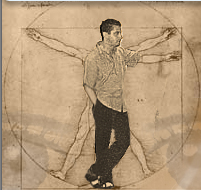| Home > Papers > CogSci |
|


| Sitemap |
| Print view |
| Login |
CogSci
“Beyond the Neural Correlates of Consciousness.” In Oxford Handbook of the Philosophy of Consciousness 2020.
Consciousness science has focused on identifying the neural correlates of consciousness. But typically science attempts not only to discover but also explain correlations. I discuss the different explanations there might be of this particular correlation and the prospects for a scientific resolution of the question of which explanation is the best.
“Metaphysics and Conceptual Analysis: Experimental Philosophy's Place under the Sun.” Experimental Metaphysics 2017.
What is the point of experimental philosophy? More specifically, what is the rationale for experimentalization of research relating to conceptual analysis? I argue that some of the common answers to this question don't withstand scrutiny, then suggest a new one.
(with Alexandre Billon.) "Jaspers' Dilemma: The Psychopathological Challenge to Subjectivity Theories of Consciousness." Disturbed Consciousness 2015.
Subjectivity theories hold that phenomenal consciousness involves constitutively a subjective for-me-ness. Some psychopathologies appear to undermine any constitutive connection of the sort. We offer two new ways in which subjectivity theories can fend off this psychopathological challenge.
(with Benjamin Kozuch.) "Correlation, Causation, Constitution: On the interplay between the science and philosophy of consciousness." The Constitution of Consciousness 2015.
We address what we take to be the two central contributions of philosophy to NCC research: methodological issues pertaining to the identification of the NCC, and metaphysical issues pertaining to what intimate relation might be suggested by the tight correlation between consciousness and a neural structure.
"A Hesitant Defense of Introspection." Philosophical Studies 2013.
Check out this argument: when a phenomenon P is observable, any legitimate understanding of P must take account of observations of P; some mental phenomena are introspectively observable; therefore, any legitimate understanding of the mind must take account of introspective observations. This paper explores the merits and implications of this line of reasoning.
“Personal-Level Representation.” Protosociology 2012.
I argue that the orthodoxy on mental representation in the philosophy of psychology can at most account for sub-personal representation. It does not have the resources to account for personal-level representation.
“A Cross-Order Integration Hypothesis for the Neural Correlate of Consciousness.” Consciousness & Cognition 2007.
This more empirically minded paper extracts from the self-representational theory of consciousness a concrete hypothesis about the NCC.
“The Phenomenologically Manifest.” Phenomenology and the Cognitive Sciences 2007.
I try to address the issue of how sincere phenomenological disagreements might be addressed and resolved by extracting from existing work two first-personal methods for settling such disputes.
“Consciousness: Phenomenal Consciousness, Access Consciousness, and Scientific Practice.” Handbook of the Philosophy of Psychology and Cognitive Science 2004.
I argue that the relationship between access consciousness and phenomenal consciousness is that of a dispositional property to its categorical basis, and that this vindicates current scientific practice in Consciousness Studies.
“The Functional Role of Consciousness: A Phenomenological Approach.” Phenomenology and the Cognitive Sciences 2004.
This paper develops what is effectively an empirical speculation about the cognitive significance, or functional role, of consciousness. The speculation is grounded in my self-representational theory of consciousness.